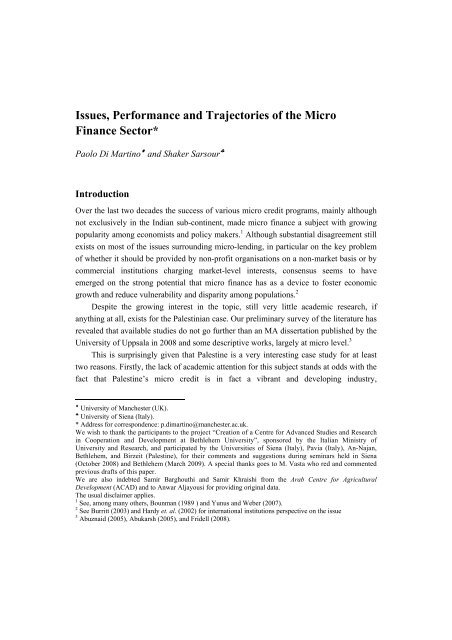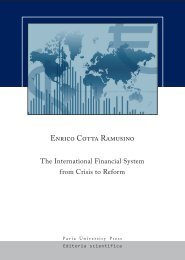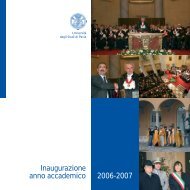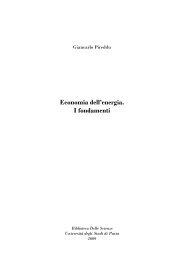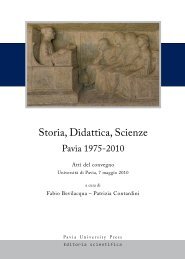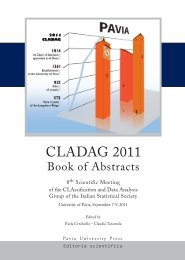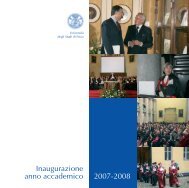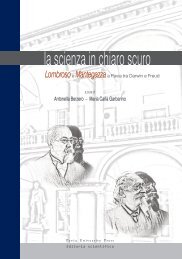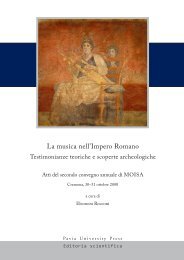The Palestinian Economy. Theoretical and Practical Challenges
The Palestinian Economy. Theoretical and Practical Challenges
The Palestinian Economy. Theoretical and Practical Challenges
Create successful ePaper yourself
Turn your PDF publications into a flip-book with our unique Google optimized e-Paper software.
Issues, Performance <strong>and</strong> Trajectories of the Micro<br />
Finance Sector*<br />
Paolo Di Martino <strong>and</strong> Shaker Sarsour <br />
Introduction<br />
Over the last two decades the success of various micro credit programs, mainly although<br />
not exclusively in the Indian sub-continent, made micro finance a subject with growing<br />
popularity among economists <strong>and</strong> policy makers. 1 Although substantial disagreement still<br />
exists on most of the issues surrounding micro-lending, in particular on the key problem<br />
of whether it should be provided by non-profit organisations on a non-market basis or by<br />
commercial institutions charging market-level interests, consensus seems to have<br />
emerged on the strong potential that micro finance has as a device to foster economic<br />
growth <strong>and</strong> reduce vulnerability <strong>and</strong> disparity among populations. 2<br />
Despite the growing interest in the topic, still very little academic research, if<br />
anything at all, exists for the <strong>Palestinian</strong> case. Our preliminary survey of the literature has<br />
revealed that available studies do not go further than an MA dissertation published by the<br />
University of Uppsala in 2008 <strong>and</strong> some descriptive works, largely at micro level. 3<br />
This is surprisingly given that Palestine is a very interesting case study for at least<br />
two reasons. Firstly, the lack of academic attention for this subject st<strong>and</strong>s at odds with the<br />
fact that Palestine’s micro credit is in fact a vibrant <strong>and</strong> developing industry,<br />
University of Manchester (UK).<br />
University of Siena (Italy).<br />
* Address for correspondence: p.dimartino@manchester.ac.uk.<br />
We wish to thank the participants to the project “Creation of a Centre for Advanced Studies <strong>and</strong> Research<br />
in Cooperation <strong>and</strong> Development at Bethlehem University”, sponsored by the Italian Ministry of<br />
University <strong>and</strong> Research, <strong>and</strong> participated by the Universities of Siena (Italy), Pavia (Italy), An-Najan,<br />
Bethlehem, <strong>and</strong> Birzeit (Palestine), for their comments <strong>and</strong> suggestions during seminars held in Siena<br />
(October 2008) <strong>and</strong> Bethlehem (March 2009). A special thanks goes to M. Vasta who red <strong>and</strong> commented<br />
previous drafts of this paper.<br />
We are also indebted Samir Barghouthi <strong>and</strong> Samir Khraishi from the Arab Centre for Agricultural<br />
Development (ACAD) <strong>and</strong> to Anwar Aljayousi for providing original data.<br />
<strong>The</strong> usual disclaimer applies.<br />
1 See, among many others, Bounman (1989 ) <strong>and</strong> Yunus <strong>and</strong> Weber (2007).<br />
2 See Burritt (2003) <strong>and</strong> Hardy et. al. (2002) for international institutions perspective on the issue<br />
3 Abuznaid (2005), Abukarsh (2005), <strong>and</strong> Fridell (2008).


